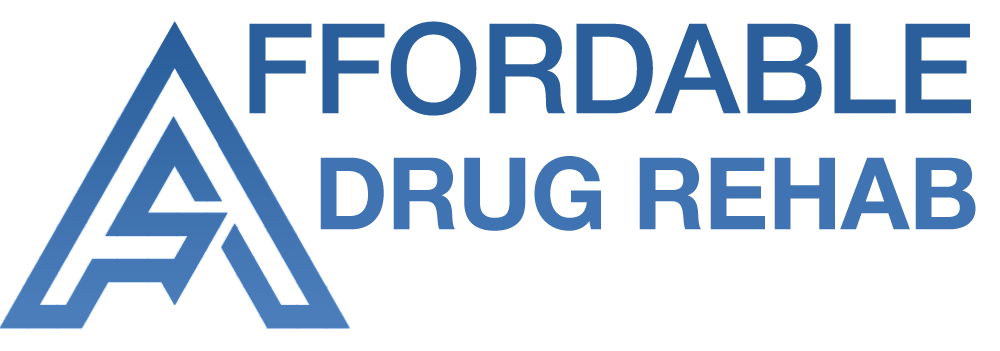Essential Access to Affordable Drug Rehab for Teenagers
Teenage drug addiction is an escalating concern in our society, affecting families and communities alike. With the surge of social media, peer pressure, and easy access to various substances, an increasing number of young people are succumbing to addiction. This troubling trend not only jeopardizes their health and well-being but also imposes long-term consequences on their futures. It’s crucial for parents, educators, and communities to provide affordable drug rehab for teenagers and support their recovery.
We must foster an environment that encourages open dialogue about substance abuse, helping to destigmatize addiction and motivating young individuals to seek assistance when necessary. Access to affordable drug rehab for teenagers can profoundly transform a teenager’s life, equipping them with the support and tools needed to navigate their challenges. This blog post aims to delve into the critical importance of such access, emphasizing its significance for the individual well-being of young people and the overall health of our society. By addressing the root causes of addiction and implementing comprehensive support systems, we can strive toward a healthier future for the next generation.
The Prevalence of Teenage Drug Addiction
According to the National Institute on Drug Abuse (NIDA), about 5% of high school seniors reported daily drug use in 2019. While this number may seem small, it represents thousands of teenagers nationwide grappling with addiction and its consequences. Using drugs at a young age can lead to significant and lasting effects on both physical and mental health, creating lifelong challenges that impact individuals, families, and communities. Teen drug addiction often increases the likelihood of continued substance use into adulthood, creating a difficult cycle to break.
Young minds are particularly vulnerable, as they are still developing emotionally and cognitively, which can affect their decision-making and lead to risky behaviors with serious repercussions. Additionally, the stigma around addiction can prevent teenagers from seeking help. Therefore, early intervention and accessible rehabilitation services are crucial to preventing devastating outcomes. Comprehensive education about the dangers of drug use, along with supportive resources for those in need, can significantly improve the lives of these young individuals, allowing them to pursue healthier futures.
The Importance of Early Intervention
Early intervention is crucial in effectively combating teenage drug addiction. Studies show that the sooner an individual seeks treatment, the better their chances of successful recovery. This is especially important for adolescents, whose developing brains may be more vulnerable to the harmful effects of drugs. Early exposure to substance use can significantly alter brain chemistry and function, increasing the risk of more severe addiction issues later on.
By providing accessible and age-appropriate rehabilitation services designed for teenagers, we can promote early intervention and prevent addiction from worsening. These services may include counseling, support groups, and educational programs that address immediate substance abuse challenges while equipping young individuals with essential coping skills to resist future temptations. Investing in early intervention strategies greatly improves their chances of long-term recovery, reducing the risk of chronic health issues, social problems, and legal troubles in the future. Ultimately, prioritizing early intervention benefits not only the individual but also fosters healthier communities as a whole.
Tailored Treatment Programs for Teenagers
Teenagers need different approaches to drug addiction than adults, mainly due to their unique developmental challenges. This highlights the importance of specialized treatment programs designed for this age group to ensure effective recovery. High-quality drug rehabilitation centers for adolescents offer tailored strategies that address their specific physical, emotional, and social needs, recognizing that adolescence is a critical time for growth.
These programs typically include various therapeutic methods, such as individual counseling, group therapy, and family involvement, to create a comprehensive treatment experience. Education and life skills training are vital components, equipping teenagers with essential tools for long-term sobriety. By teaching coping strategies, decision-making skills, and healthy lifestyle choices, these programs empower young individuals to navigate adolescence without turning to substance use.
Additionally, creating a supportive environment that aligns with their developmental stage can significantly improve their recovery chances. Such environments promote connections with peers who share similar experiences, fostering supportive relationships that are crucial during this phase. Overall, a holistic and nurturing approach enhances treatment effectiveness, paving the way for lasting change and a brighter future for teenagers facing addiction.
Addressing Underlying Issues
Teenage drug addiction often stems from deeper underlying issues such as trauma, mental health disorders, or family difficulties. These factors can create a perfect storm, leading young individuals to seek refuge in substances as a coping mechanism. Quality drug rehabilitation centers understand that merely addressing the addiction is not enough; they must also tackle these root causes through comprehensive therapy and counseling programs.
By thoroughly examining and addressing the underlying issues, these centers significantly enhance teenagers’ chances of overcoming substance use and preventing future relapses. This holistic approach not only fosters sobriety but also promotes personal growth and emotional healing. Comprehensive treatment plans that include mental health support, life skills training, and family involvement can greatly improve outcomes for young individuals, building resilience and equipping them with the tools needed to navigate life’s challenges without turning to drugs.
The Role of Affordable Drug Rehab
One major obstacle to accessing quality drug rehabilitation for teenagers is the cost, which can be prohibitive for many families. The financial strain of expensive treatment programs often leaves parents feeling powerless, lacking the resources to provide essential care and support for their children. This lack of access can have serious consequences, with teenagers missing out on the urgent help they need, jeopardizing their health and future. Affordable drug rehab for teenagers options are crucial to ensuring that all teenagers, regardless of financial circumstances, receive the necessary assistance to combat addiction.
These programs can include sliding-scale fees based on family income, scholarships for those in need, or government-funded initiatives that provide accessible treatment for youth. By making drug rehabilitation more affordable, we can ease the financial burden on families already facing the emotional and practical challenges of a child’s addiction. Ensuring accessible treatment allows teenagers to get the vital support and resources needed for recovery, fostering healthier futures and stronger, more resilient families.

Breaking the Stigma Surrounding Teenage Drug Addiction
Access to quality and affordable drug rehabilitation for teenagers is crucial for their recovery and for dismantling the stigma around teenage drug addiction. Many families may feel shame or embarrassment about their child’s struggles, fearing judgment from peers or the community, which can prevent them from seeking the help their child needs. Normalizing the pursuit of treatment for teenage drug addiction is vital; it empowers families to seek support without stigma.
Achieving this normalization requires community awareness campaigns, educational initiatives, and open dialogues that emphasize the importance of mental health and addiction treatment as key aspects of overall wellness. By fostering a supportive environment based on understanding and compassion rather than judgment and shame, we can create safe spaces for teenagers to discuss their challenges. This atmosphere encourages affected individuals to seek help and allows families to confront these issues more comfortably, ultimately strengthening the support network essential for recovery.
Holistic Healing Approaches
Quality drug rehabilitation centers for teenagers often take a holistic approach to treatment, focusing on healing the mind, body, and spirit. This comprehensive method recognizes that substance abuse affects all areas of a young person’s life, requiring treatment that addresses emotional, physical, and psychological well-being. Programs usually include various therapies. Cognitive-behavioral therapy (CBT) helps teens identify and change negative thought patterns, while art therapy offers a creative way to process emotions. Mindfulness practices boost self-awareness and promote effective stress management.
Holistic approaches aim to provide comprehensive care that nurtures every aspect of a teenager’s well-being, fostering recovery from addiction as well as personal growth. By combining these methods, rehabilitation centers can offer a well-rounded and effective treatment experience. Many centers also incorporate family therapy sessions, acknowledging the importance of a supportive home environment in the healing process. This integrated approach empowers teenagers to build resilience and healthier coping mechanisms, equipping them with the skills to face life’s challenges with confidence. Ultimately, the goal is to give young individuals the tools they need for long-term recovery and fulfilling lives.
The Role of Family in Recovery
Family involvement is a crucial part of a teenager’s recovery journey, significantly aiding their healing and growth. Recognizing this, high-quality drug rehabilitation programs often include family therapy sessions as a key component of their treatment plans. These sessions focus on rebuilding trust and improving communication within the family, addressing any underlying issues related to the teen’s challenges. By engaging families in the recovery process, rehab centers create a stronger support system for the teen.Educational Support During Rehab
This collaborative approach not only strengthens the connection for the young person but also educates family members about addiction and recovery. Families learn effective strategies to support their loved ones, which is vital for achieving long-term success. Equipped with the right tools and insights, families can foster a nurturing environment that encourages ongoing recovery and personal development for their teenager, ultimately leading to better outcomes and healthier family dynamics.
Continuing Education for a Successful Future
Maintaining educational progress is crucial for teenagers in rehabilitation, as it supports their academic growth and boosts their sense of normalcy and self-worth. Understanding the importance of education during this critical time, affordable drug rehab for teenagers provide comprehensive support to ensure adolescents don’t fall behind in their studies. These centers offer personalized tutoring, academic resources, and online learning options, creating an environment where young individuals can continue their education while in treatment. This focus on both recovery and education is essential, as it prepares them for a brighter future after rehab. It fosters a sense of responsibility and accomplishment, reinforcing that their goals are attainable despite challenges. Additionally, continuing their education during rehab helps them transition back to school smoothly, allowing them to reintegrate into their academic routines with confidence. Ultimately, this holistic approach not only aids their recovery but also equips them with the skills and knowledge needed for future success.
Peer Support and Community Building
Peer support is crucial in a teenager’s recovery journey, significantly contributing to resilience and healing. Being surrounded by peers who understand their challenges offers a comforting sense of belonging, empathy, and encouragement that can be hard to find elsewhere. Affordable drug rehab for teenagers emphasize building a strong community among teens, recognizing that shared experiences can enhance the recovery process. These centers provide ample opportunities for peer support through structured group therapy sessions, allowing teens to safely express their feelings and challenges.
In addition to therapeutic discussions, recreational activities—like team sports, arts and crafts, and outdoor adventures—are organized to foster camaraderie and deeper connections. This supportive network, rich in understanding and solidarity, plays a vital role in keeping teens motivated and committed to their recovery, ensuring they never feel alone in their struggles. Ultimately, peer support not only facilitates individual recovery but also builds lasting friendships that continue to offer encouragement long after rehab ends.
Preventing Relapse Through Continued Care
The journey to recovery is a lifelong effort that goes beyond completing a rehabilitation program. While finishing rehab is a significant milestone, ongoing care and support are crucial for preventing relapse and ensuring long-term sobriety. Affordable drug rehab for teenagers recognize this need and provide comprehensive aftercare programs designed to assist individuals on their recovery paths. These programs typically include continued counseling, peer support groups, and resources tailored to help teenagers maintain their sobriety and handle daily challenges.
Support may include life skills training, vocational counseling, and access to educational resources, all aimed at equipping teens with the tools for a successful future. By establishing a long-term care plan with regular check-ins and support networks, these centers proactively address potential triggers and stressors that could lead to relapse. This holistic approach not only promotes lasting recovery but also encourages a healthier, more fulfilling life, empowering teenagers to make positive choices for a brighter future.
Conclusion
Access to quality and affordable drug rehab for teenagers is crucial for their well-being, our society, and our future. It is our responsibility as a community to ensure that these vulnerable individuals have the necessary support to overcome their addiction and lead healthy, fulfilling lives. By breaking down barriers to access and providing comprehensive, tailored care, we can create a more supportive environment for their recovery. Contact our admissions team by calling 1 (888) 850-3656 or clicking Affordable Drug Rehab. Together, we can make a positive impact on the lives of teenagers struggling with drug addiction. Remember, they are not alone, and recovery is possible with the right resources and support. We are here to help you find the quality and affordable care that you need.


